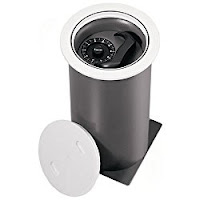10 steps to improve fire safety in your home
10 steps to improve fire safety in your home
We can’t emphasise enough the importance of fire safety in
your home. You have to be able to adequately protect yourself and your loved
ones from the dangers of fire and smoke. Read more to find out some simple,
practical tips which you can implement easily in any property to improve your
fire safety.
Electrical appliances and household installations
Make sure to unplug electrical charging devices when going out of your home. Some chargers have even more tendency to go on fire or explode. So much so that it’s even recommended to avoid charging overnight with some devices.
Know your escape route(s)
Every member of the family should know the escape routes if there is a fire in your property. It’s not enough to just know the way though, you need to prepare; keep the routes clear of debris and trip hazards, keep keys next to locked doors and keep a torch beside each bed where someone sleeps.
Use Fire Doors
Any local locksmith or door installer can help you with this task. Changing your doors to fire rated doors are an important step to keep parts of the house safe for a while when there is fire. Fire doors are rated FD30' and FD60' for the number of minutes they can resist fire. Installing a fire door can also help in protecting someone if they can't escape when fire is at the entrance of a flat on a high floor (god forbidden). It allows the fire fighters some time to rescue the house and people's life.
At an emergency you should also call a locksmith to open the door when there is fire. Here is some more about whether to call a locksmith or the fire fighters.
Smoke Alarms
The first tip is a simple and obvious, but so often an
overlooked one. Installing smoke alarms is simple and effective; be sure to
check that yours conform to British Standard 5446, Part 1 (which may be printed
as BS5446-1). It’s a good idea to install multiple alarms of different levels
of your property and even more than one on the same level if your footprint is
extensive.
Keep matches and lighters away
And this means out of the reach of children, away from
direct sunlight and nowhere near any sort of naked flame or spark. Cupboard
locks are a good idea if you do have young children.
Check your chimney
Open fires are homely and very much back in fashion, but an
unswept chimney can mean that harmful fumes don’t escape properly. A local
chimney sweep will be able to help you assess the risk.
Carbon monoxide detectors
Despite all of the publicity and marketing campaigns around
carbon monoxide detection there are still around 50 people dying per year in
the UK from carbon monoxide poisoning. Often people don’t realise that burning
any fossil fuel can result in the generation of carbon monoxide, not just gas, so
even houses with just an open fire or wood burner should still have a carbon
monoxide detector installed. All carbon monoxide detectors should comply with
British Standard 7860 (or BS 7860).
Fire safety equipment
Fire extinguishers and fire blankets belong in the home, not
just commercial properties. That said you must take proper time to understand
how and when to use extinguishers and fire blankets; different extinguishers
deal with different types of fires and source materials and fire blankets need
to be used safely and appropriately.
Get the professionals in
Did you know that the some of the local Fire and Rescue
Services offer a free fire safety risk assessment for your home? Well you do
now! A free risk assessment such as this could be a life saver and it’s free so
what do you have to lose? Contact your local Fire and Rescue service today and
book an assessment. Did we mention that it’s free?!
In conclusion
We hope that you’ve found these tips helpful; we’ve aimed to
make them as practical and straightforward as possible so as to have the
maximum impact on your fire safety. Put
these steps in place today and help protect yourself and your loved ones.



Comments
Post a Comment